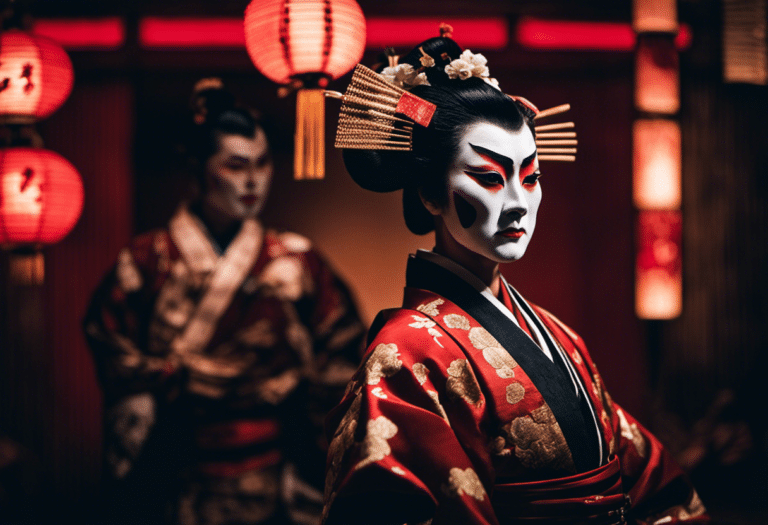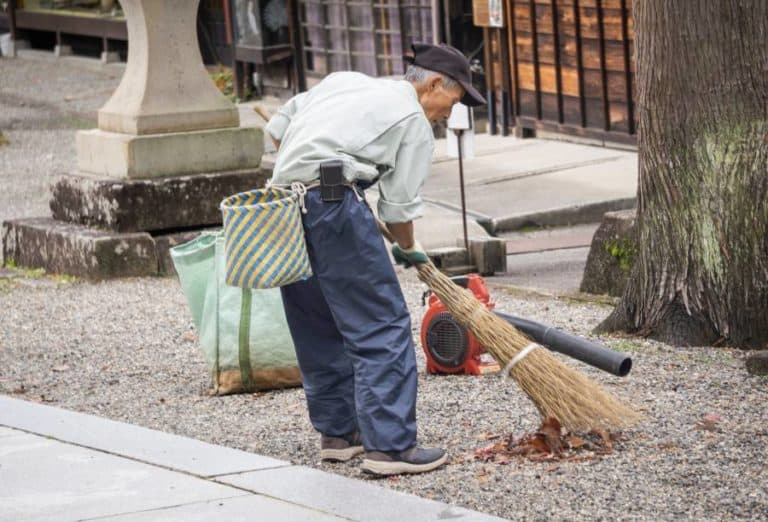What is Considered Rude in Japan?
Japan is a fascinating country with an exciting culture. As a foreigner, certain things may be considered rude that you are unaware of.
This article will explore some of the most common offenses in Japan that can get you in trouble. We will also provide some tips on how to avoid these situations.
So, whether you are a first-time visitor or have lived in Japan for some time, read this article!
16 Things that are Considered Rude in Japan
1. Blowing Your Nose
You might be surprised to learn that blowing your nose in public is considered rude in Japan. It’s seen as gross and uncouth, similar to how mucus is as vile as other body excretions in the Western world.
Handkerchiefs are typically reserved for wiping sweat or tears; you won’t often find a Japanese person carrying one.
It’s also considered unhygienic to blow your nose into a handkerchief, so it’s best to excuse yourself and go somewhere private if necessary.
If you don’t have a tissue handy, try simply sniffing or coughing into the inside of your elbow.
This may sound strange, but it is common practice in Japan and much more socially acceptable than blowing your nose into a tissue or handkerchief.
2. Pointing at People or Things
In Japan, pointing your finger at someone or something is considered rude, so it’s best to avoid doing this.
Instead, use your hand (or even a gentle wave of the arm) to indicate a person, object, or direction; this is more polite.
It’s also important to remember that raising your voice or shouting here is seen as very rude, and it’s best not to scream or raise your voice in public settings.
Keep your voice mindful and speak moderately to show respect for the people around you.
By being aware of these customs and observing them while in Japan, you’ll leave a better impression on the people you meet during your travels and be sure not to offend anyone unintentionally.
3. Tipping
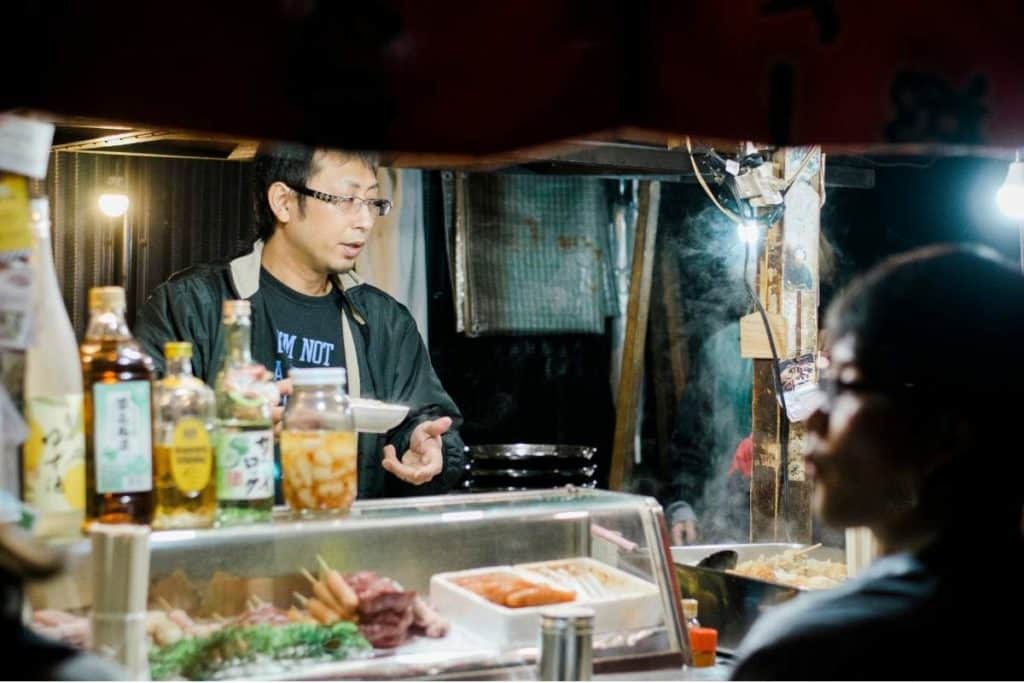
In Japan, tipping is considered rude. This is something that Western travelers to Japan should be aware of since tipping is such a common practice in many other countries.
While tip-based service cultures may be acceptable in some places, Japanese culture values dignity and respect more than tipping.
The truth is people in Japan are not accustomed to receiving tips for their services and don’t expect it. Their salaries are already quite good, so there’s no need to tip them.
It might even be considered rude or offensive if you try to do so.
So if you want to avoid making a faux pas, keep your wallet out of sight when paying for a service in Japan and leave the gratuity behind!
4. Talking or Laughing Loudly in Public
When it comes to making noise in public, it’s best to keep things quiet in Japan.
Talking or laughing loudly in public is considered rude, and even if you’re surrounded by other people talking loudly, you should still try to stay quiet.
You may be with friends and want to join the conversation but resist the urge; interjecting yourself into a conversation is considered rude in Japan.
Even if you have something important to say, wait until the other person has finished speaking before you begin good practice.
It’s also important to note that laughing out loud in public is considered vulgar. Instead, smile politely and chuckle inside your head.
That way, you can enjoy your friends’ company without offending anyone.
5. Interrupting Someone Who is Talking
Interrupting someone who is speaking is considered impolite in Japan.
Even though it might be seen as a sign of interest and enthusiasm in some cultures, but it should be avoided here.
It’s customary to remain silent during conversations and allow people time to think about the discussion.
Interrupting the speaker without letting them finish or oppose them is vulgar.
Politely waiting your turn to speak and using proper verbal cues such as ‘excuse me’ and ‘if I may’ will keep you on the right track.
When having a discussion, it’s also essential to try and understand what people are saying before giving a response.
This will help ensure everyone is on the same page and avoid misunderstandings or awkward conversations.
6. Not being punctual for appointments or meetings

Punctuality is considered such an essential part of life in Japan that people who are late are often seen as disrespectful. This is particularly true for conferences and appointments, which usually start precisely on time.
I remember one time when I was meeting with a group of colleagues at a restaurant, and one of them showed up over an hour late.
The rest of us had already ordered and were waiting for him at the table. He had no idea what he was walking into. He was not very well-liked after that.
I’ve also had the experience of being late for an appointment, and I can tell you that it’s not a good feeling.
Suppose you are invited to a party or event in Japan. In that case, it’s important to remember the Japanese sense of punctuality: even if the event isn’t starting for an hour (or more), showing up no earlier than 10 minutes before its scheduled start is best.
Japanese culture puts a lot of importance on being on time, so it’s best to avoid being late.
7. Hot Spring Bath with Clothes On

I remember the first time I went to a Japanese onsen (hot spring bath).
I was told to be completely naked, but I thought it would be okay to keep my clothes on. That turned out to be a big mistake!
I quickly realized that everyone else was completely naked when I got there.
And to make matters worse, my clothes and bathing suit were considered unclean. So not only was I the only person with clothes on, but I was also the only person who looked like they didn’t belong.
It was an embarrassing experience, but it taught me a valuable lesson about respecting local customs.
If you’re visiting Japan, research the local customs to avoid making the same mistake I did.
8. Dipping the Rice Part of Nigiri Sushi into Soy Sauce
When I eat nigiri sushi in Japan, I’m always careful to only dip the fish into soy sauce, not the rice.
This is because the rice can absorb too much soy sauce and begin to break apart, thus ruining the appearance of the sushi.
Some people might find it rude if you dip the rice part of the nigiri sushi into soy sauce.
It’s best to know this etiquette before eating sushi in Japan or anywhere else. When in doubt, it’s better to be safe than sorry!
9. Eating or drinking while walking on the street
Another thing to remember is that eating or drinking while walking on the street is generally frowned upon in Japan. Although people may not say anything to you if you eat or drink while walking on the road, they will still judge you for doing so.
If you need a snack on the go, try to find a place to sit and enjoy it.
On local trains and buses, dining or drinking is also not allowed.
Eating and drinking on the street or standing in large groups can also be considered disrespectful and should be avoided.
It’s important to remember that Japanese culture is all about respect.
10. Using someone’s first name without permission
In Japan, using someone’s first name without permission can be impolite.
It’s common for people to only use their last names in formal settings or with strangers, and it’s generally best to only use first names in the workplace if given permission.
If you need clarification on whether addressing someone by their first name is appropriate, a safe bet is to use their surname.
This is generally seen as a polite and respectful way of addressing someone and shows that you understand Japanese culture.
Another critical thing to note is that addressing someone without using any name can also be seen as impolite.
11. Not bowing when greeting or thanking someone
Bowing is a sign of respect in Japan, and if you’re not bowing when greeting or thanking someone, it can be seen as disrespectful.
If you’re being formally introduced to someone, it’s customary to bow deeply and for longer than when exchanging casual pleasantries with someone.
The depth of the bow is determined by social standing; the lower the bow, the more respect that is implied.
A nod of the head can be sufficient when greeting or saying goodbye to people you have a less formal relationship with. A deep bend at the waist might be more appropriate when dealing with superiors or elders.
While bowing may seem outdated to some, it’s still part of Japanese culture and etiquette.
12. Bringing a gift that is not wrapped
When bringing a gift to Japan, it is crucial to wrap the item carefully.
Wrapping your gift is essential to show respect and thought, even if it’s just a small token.
In Japan, gifts are presented with both hands, and the person receiving them should also take them with both hands.
It is good manners to respect the giver’s feelings by not opening a gift in front of them, even if they insist you do so.
You should give a gift to everyone in the group or family, not just one person; many people will even bring multiple gifts.
13. Not waiting your turn in line
In Japan, waiting your turn in line is considered polite and respectful.
Not waiting in line is impolite and disrespectful. In Japan, long lines outside restaurants or attractions are standard, and it’s considered rude to cut ahead of others standing there for a while.
This also goes for small gatherings like waiting for food to arrive at a restaurant or for someone to finish speaking before you start talking.
A good rule of thumb is that if it’s something that other people are waiting for, it’s better to wait your turn politely instead of cutting in line.
If you need clarification regarding lines or any other social situation in Japan, remember that politeness and patience will help smooth things.
14. Not respecting personal space
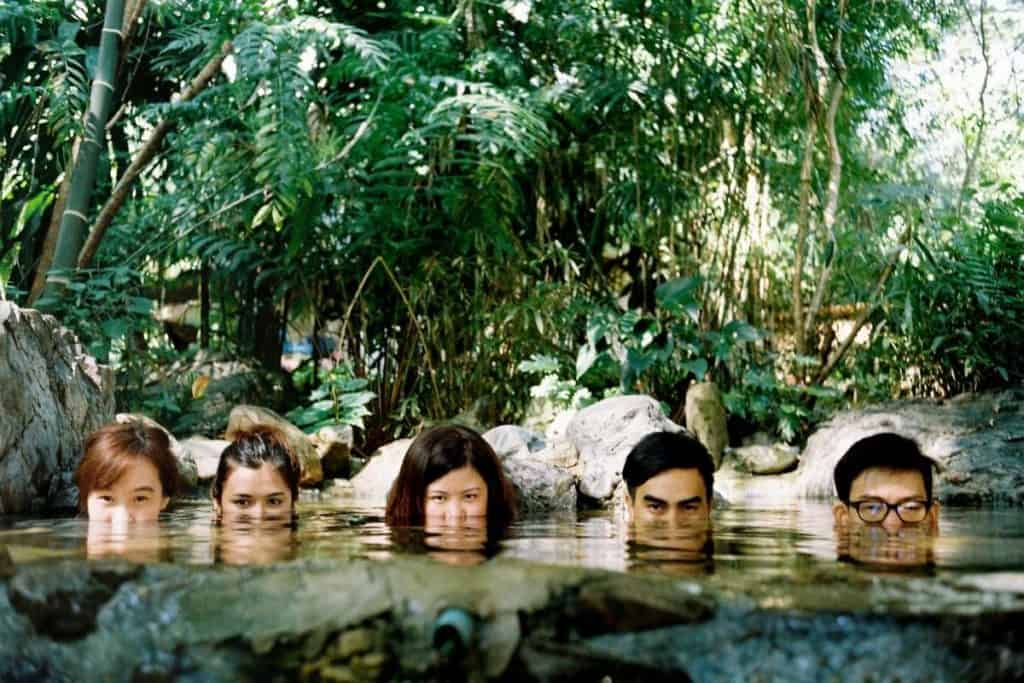
In Japan, every person values personal space, and any invasion of this space is considered rude. For example, standing too close to someone you don’t know well is considered rude because it violates their boundaries.
When engaging with a Japanese person, ensure you give them the space they need and respect their comfort level.
It’s also good practice to remain a few steps away from someone during a conversation.
You might also be surprised to learn that avoiding prolonged eye contact (staring) is polite in Japan as it shows respect for one’s personal space.
15. Public displays of affection
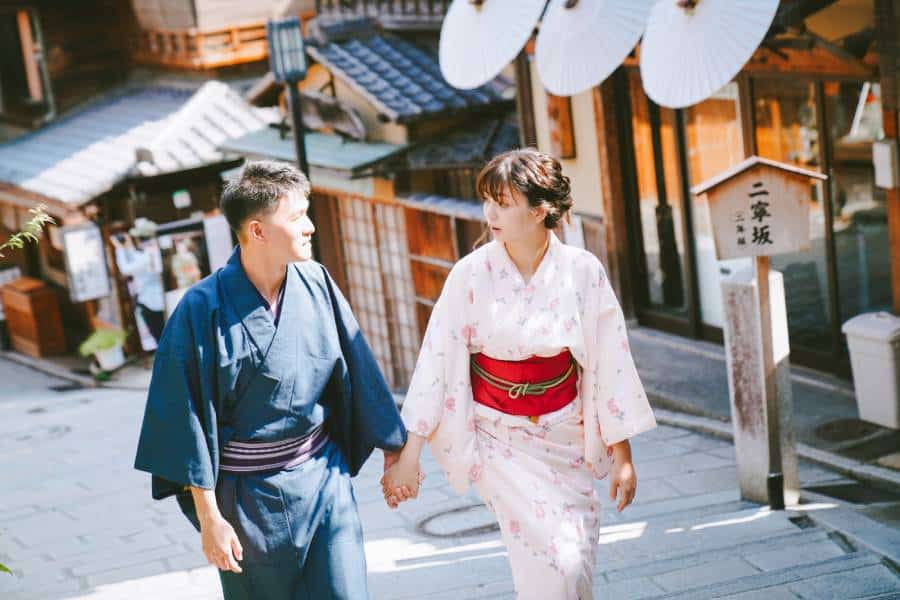
In Japan, public displays of affection are still sporadic and generally considered inappropriate. Even something as simple as holding hands can draw a lot of stares and whispers.
But if you must express your romantic feelings in public, it’s best to keep it to quick kisses.
No tongue, just a quick peck on the lips. And whatever you do, ensure it’s not in front of his friends, co-workers, or family; that’s crossing the line!
Bonus Tip: Taboo subjects in conversation
If you are conversing with someone in Japan, it’s essential to know the topics that are considered taboo.
This includes conversations about politics, religion, money, salary, and other topics considered rude or offensive.
Critiquing a woman’s makeup or clothing choices is also considered rude.
Finally, you should never walk on the left side of the sidewalk in Japan; this is considered rude as most Japanese people walk on the right side!
Conclusion
It is often said that Japanese culture highly values politeness and I couldn’t agree more.
Like in any other culture, social norms and expectations dictate how people should behave to avoid offending others.
As you can see, even minor things such as using the wrong garment, making a loud conversation on the subway, or refusing food can be seen as offensive and rude.
If you want a more enjoyable trip to Japan, learning about Japanese culture and customs is essential before planning your trip to the rising sun.

